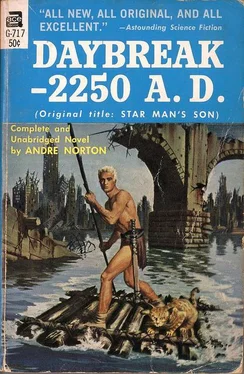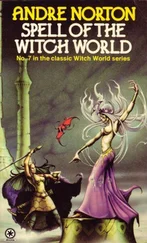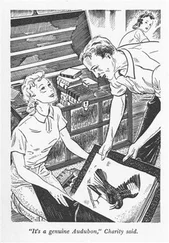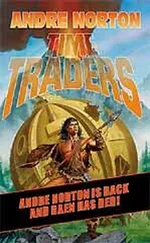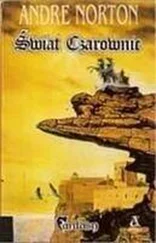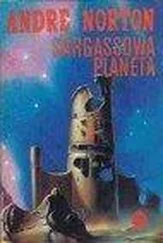Andre Norton - Daybreak—2250 A.D.
Здесь есть возможность читать онлайн «Andre Norton - Daybreak—2250 A.D.» весь текст электронной книги совершенно бесплатно (целиком полную версию без сокращений). В некоторых случаях можно слушать аудио, скачать через торрент в формате fb2 и присутствует краткое содержание. Год выпуска: 1952, Издательство: Ace Book, Жанр: sf_postapocalyptic, на английском языке. Описание произведения, (предисловие) а так же отзывы посетителей доступны на портале библиотеки ЛибКат.
- Название:Daybreak—2250 A.D.
- Автор:
- Издательство:Ace Book
- Жанр:
- Год:1952
- ISBN:нет данных
- Рейтинг книги:3 / 5. Голосов: 1
-
Избранное:Добавить в избранное
- Отзывы:
-
Ваша оценка:
- 60
- 1
- 2
- 3
- 4
- 5
Daybreak—2250 A.D.: краткое содержание, описание и аннотация
Предлагаем к чтению аннотацию, описание, краткое содержание или предисловие (зависит от того, что написал сам автор книги «Daybreak—2250 A.D.»). Если вы не нашли необходимую информацию о книге — напишите в комментариях, мы постараемся отыскать её.
Daybreak—2250 A.D. — читать онлайн бесплатно полную книгу (весь текст) целиком
Ниже представлен текст книги, разбитый по страницам. Система сохранения места последней прочитанной страницы, позволяет с удобством читать онлайн бесплатно книгу «Daybreak—2250 A.D.», без необходимости каждый раз заново искать на чём Вы остановились. Поставьте закладку, и сможете в любой момент перейти на страницу, на которой закончили чтение.
Интервал:
Закладка:
“You-where?” he demanded that of the Plainsman who could not or would not answer.
When he did not reply the Beast Leader leaned over and, with a deliberation which was as cruel as the blow, slapped the captive with lip-bursting force across the mouth. It then swung to Fors and repeated his question.
“From the south—” Fors croaked.
“South,” the leader repeated, distorting the word oddly. “What in south?”
“Men—many, many men. Ten tens of tens—”
But that sum was either beyond the calculations of the creature beside him, or the Beast Thing did not believe in its truth, for it cackled with a ghastly travesty of laughter and, reaching out, brought a fist down across his wounded arm. Fors fainted, dropping into blackness with a sick swoop.
A scream brought him back to consciousness. He had the echoes of that cry still ringing through his head when he forced open his eyes and tried to stabilize crazily flowing blocks of light and shade. A second cry of pain and horror settled the world into place.
The leader of the Beast Things still squatted between the captives and in outstretched hand it held the struggling body of one of the hungry rats. There was red on the vermin’s fangs and more scarlet drops spattered its breast and forepaws as it fought like a mad things against the hold which kept it from its prey.
Down the arm and side of the Plainsman a line of dripping gashes told the story. His distorted face was a mask of tortured despair as he cursed, his words a frin-zied mumble which soared into a scream every time the Beast Leader held the rat closer.
But a cry of pure rage cut through the captive’s breathless sobbing, a cry uttered by the leader. The rat had turned to slash one of the fingers which held it. With a snarl the Beast Leader twisted the writhing body. There was a cracking and the thing he threw from him was limp and broken. He got to his feet, the torn finger at his mouth.
A respite—for how long? The Beast Things seemed to feel themselves safe in this camping site they had chosen. They were not moving on for the night—but just as Fors decided that, the picture changed suddenly. Two more of the enemy came out of the bush and between them them they pulled along a mangled, trodden body—the body of one of their own kind. Over this there was a hasty consultation and then the leader barked an order. The bearer of the rat cage took up its burden and four of the largest of its fellows came over to the captives.
Knives slashed free their bonds and they were pulled and slapped to their feet. When it was apparent that neither could walk, there was a second conference. From gestures Fors gathered that one party was in favor of killing them at once, but that the leader opposed this. And in the end the leader carried the debate. Two of the clan trotted off and returned shortly with stout saplings which were trimmed of branches. And in a moment or two Fors found himself lashed to one of these, dangling face to the ground, carried between two of the Beasts who moved on with their deceptively easy pace.
He never remembered much of that night. The bearers of his pole changed from time to time, but he swung in a daze, rousing only when he was dropped painfully to the ground during these operations. And they must have been halted for some time when he became aware of the sound.
He was on the ground, his ear tight to the earth. And at first he thought that the pounding beat he heard must be the heated blood running in his own feverish body— or else that it was but another shadowy bit of a delirious nightmare. But it continued—steadily—alive—alive, and somehow reassuring. Once, long before, he had heard a sound like that—it had had a meaning. But the meaning was lost. Now he was only aware of his body, the mass of pain which had become a thing apart from Fors. Fors was gone away—far away from that pain—what remained could not think—could only feel and endure.
Why, now that distant throbbing was broken by another, a deeper, heavier beat—two sounds. And he had once known them both. But neither mattered now. He must watch red eyes which stared at him from spaces in wickerwork, red, hungry eyes which watched and waited, growing still more starved and demanding. And in the end those eyes would come closer and closer and teeth would be with them. But that did not matter very much either.
Somewhere there was shouting, it tore a hole through his head, made his ears ring. But it did not frighten the eyes, they still watched and waited.
The throbbing, now it filled the air, beating into him. Why, he was up now, being held on his feet by rough hands. He was being tied fast again—or so he thought, he was too numb to feel bonds. But he was standing right enough, looking down from the crest of a hill.
And he watched the dream roll on—the dream which had nothing to do with him. There were horsemen down there, riding in a charging wave. Around and around they were circling. He closed his eyes to the glare of light. Around and around— almost they were passing in answer to the beat—almost but not quite. The beat was not coming from the horsemen—it had another source.
Fors hung unresisting. But a tiny spark of the real Fors was moving in the broken, hurting body. Now he forced open his eyes and there was intelligence and purpose looking out of them.
The horsemen were keeping in their moving circle and as they rode they hurled spears up the grade. But among the horsemen others tramped now, men who ran lightly with ready bows. And the arrows made a cloud against the sun. The noose of men and horses drew smaller and tighter about the hill.
Then Fors realized suddenly that his body was part of the defense wall of those besieged here, that he had been fastened up for a screen behind which the dart throwers could crouch in safety. And those darts, expertly aimed, were taking toll below. Man and horse went down to cry and kick or lie still. But that did not halt the circle, nor deaden the flying arrows.
Once there was a loud screech of anguish and a body fell out from behind the barrier of which he was a part. On hands and knees it blundered downhill, heading for one of the nimble archers. They met in a headlong crash of fighting rage. Then a horseman swung low from the saddle and used his lance expertly. Both bodies lay still as he rode on.
A heavy blow landed on Fors’ side. He forgot about the fighting as he looked down. His own arm hung there, free, a dead weight with the cut thong still ringing the purple swollen wrist. Arrow or spear had cut that tie. He ceased to have any interest in the battle—his world narrowed in that instant to the one free hand. In the puffed flesh there was no feeling, he could not even move it yet. So he concentrated on the fingers, he must move his thumb, his forefinger—even a fraction of an inch—he must!
There! He could have shouted at his success. The arm still was limp and heavy against his side but he had clawed the fingers against his thigh. One hand and arm free—and it was his right—the unhurt one! He turned his head. His other wrist was fast to another sapling post driven into the ground. But the very way the Beast Things were using him, as part of their defense works, was now in his favor. The left arm was not stretched full length from his shoulder. If he could bring the right fingers up, bring them up and make them work, he was sure he could unfasten that one too.
The barrier of which he was now a part must have screened his actions from his captors—or else they were too occupied to take any interest in him. He was able to bring the hand across, bring it across and force the fingers to the bonds on his left wrist. But it was another thing to untie the cords there. His numb fingers could not even feel and they kept slipping off.
Читать дальшеИнтервал:
Закладка:
Похожие книги на «Daybreak—2250 A.D.»
Представляем Вашему вниманию похожие книги на «Daybreak—2250 A.D.» списком для выбора. Мы отобрали схожую по названию и смыслу литературу в надежде предоставить читателям больше вариантов отыскать новые, интересные, ещё непрочитанные произведения.
Обсуждение, отзывы о книге «Daybreak—2250 A.D.» и просто собственные мнения читателей. Оставьте ваши комментарии, напишите, что Вы думаете о произведении, его смысле или главных героях. Укажите что конкретно понравилось, а что нет, и почему Вы так считаете.
